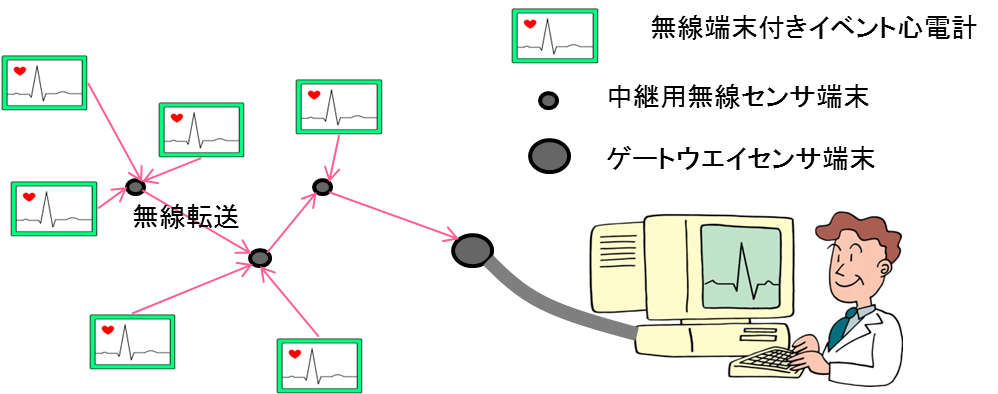
ZHU Xin
Senior Associate Professor
- Affiliation
- Department of Computer Science and Engineering/Division of Information Systems
- Title
- Senior Associate Professor
- zhuxin@u-aizu.ac.jp
- Web site
- http://www.u-aizu.ac.jp/~zhuxin
Education
- Courses - Undergraduate
- L5 Computer Science&Engineering LaboratoryA4 Biomedical Information TechnoloyA2 Computer GraphicsP3 Java I (Retake)SCCP
- Courses - Graduate
- ITC06 Introduction to BioinformaticsITA03 Biomedical Modeling and VisulizationITA24 Biomedical Imaging and AnalysisCV8Computer Graphics
Research
- Specialization
-
Life\, health and medical informatics
Biomedical engineering
Biomedical Signal ProcessingCardiac modeling and computer simulationImplantable Cardiac Device Therapy
- Educational Background, Biography
- 2006.09 Ph.D. the University of Aizu 2006.09~2009.03 Special researcher, Biomedical Information Technology Lab, the University of Aizu 2009.04~ Asso. Professor, Biomedical Information Technology Lab, the University of Aizu
- Current Research Theme
- Signal processing and automatic recognition of arrhythmic ECGOptimization of implantable cardioverter defibrillator's implantation siteUncontrained monitoring
- Key Topic
- Electrocardiology, cardiac arrhythmia,cardiac ICD therapy, monitoring
- Affiliated Academic Society
- IEEEThe Japanese Circulation SocietyThe Japanese Society of Electrocardiology
Others
- Hobbies
- Snowboard, Badminton Reading
- School days' Dream
- Be useful for human beings
- Current Dream
- Discover the mechanism of life using virtual technology
- Motto
- Practice, Patience, Perseverance
- Favorite Books
- Stephen Hawking "A Brief History of Time: from the Big Bang to Black Holes"
- Messages for Students
- Have an ideal and realize it
- Publications other than one's areas of specialization
- Fung Yu-Lan "A Short History of Chinese Philosophy" Jostein Gaarder "Sophie's World"
Main research
- Biomedical signal processing, cardiac modeling and simulation
- Portable ECG event monitors that use sensor networks
-
- Background
Event electrocardiographs are devices for taking electrocardiograms when a patient becomes aware of symptoms such as pains affecting his or her heart. Event electrocardiographs can reveal low-frequency arrhythmia, and can be used in emergencies involving cardiac events. Existing event electrocardiographs had short recording times, and because their results had to be phoned in, that could sometimes be inconvenient – or worse, such as when a patient who had suffered a cardiac event was in no position himself to use a phone.
- Features of this technology- Because the electrocardiogram information is recorded using a sensor network and is sent not by existing telephone lines but rather in an instant to the server at the patient's medical institution, this enables both emergency diagnosis and remote diagnosis of the cardiac event to occur.
- There is no limit on its recording time, and it can also take GPS data measurements.
- It is low cost; has low power consumption; and can also be connected wirelessly.
Dissertation and Published Works
Xin Zhu, Daming Wei, and Osamu Okazaki, "Computer simulation of clinical electrophysiological study", PACE, 2012, 35, pp.718-729.
Xin Zhu, Wenxi Chen, Tetsu Nemoto, Kei-ichiro Kitamura, and Daming Wei: "Long-term monitoring of heart rate, respiration rhythm, and body movement during sleep based upon a network," Telemedicine and e-Health, 2010, 16(2), pp.244-253
Kei-ichiro Kitamura, Xin Zhu, Wenxi Chen, and Testu Nemoto: "Development of a new method for the noninvasive measurement of deep body temperature without a heater," Medical Engineering & Physics, 2010, 32(1), pp. 1-6
Wenxi Chen, Xin Zhu, Tetsu Nemoto, Kei-ichiro Kitamura, and Daming Wei: "Unconstrained monitoring of long-term heart and breath rates during sleep", Physiol. Meas., 2008, 29(2), N1-N10
Xin Zhu, Wenxi Chen, Tetsu Nemoto, Yumi Kanemitsu, Kei-ichiro Kitamura, Kenichi Yamakoshi, and Daming Wei: "Real-time Monitoring of Respiration Rhythm and Pulse Rate during Sleep", IEEE Trans. on BME, 2006, 53(12), pp. 2553-2563



